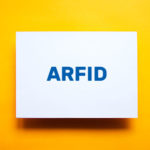
Whether you’re looking for you or for your child, we know it is tough finding the right care for feeding challenges. You’re likely looking for a therapist that you work well with, a therapist or a clinic who can work with your schedule, and a treatment option that you can afford. Then add a less common, and often misunderstood, feeding challenge such as Avoidant/Restrictive Intake Disorder (ARFID) on top of that…
Click here to read more about ARFID and Children and the Types of ARFID on our blog.
There are a number of services out there to help you meet your goals of expanding food repertoire and increasing your nutritional intake. In this blog post, we will explore the benefits of both online and in-person clinic programs, and discuss the importance of finding a clinic dedicated to addressing ARFID specifically.
Online Programs:
Online programs have emerged as a valuable resource for individuals seeking support for various conditions, including ARFID. These programs offer several advantages, such as flexibility, accessibility, and cost-effectiveness. By utilizing telepractice, therapists, such as SLPs, psychologists, and dieticians, can remotely provide assessments, therapy sessions, and parent training, ensuring that families have access to specialized care regardless of their geographical location.
In-Person Programs:
While online programs offer undeniable benefits, in-person programs still hold significant value for certain individuals with ARFID. Hands-on intervention provides therapists with the opportunity to directly observe and interact with the individual during mealtimes, enabling them to address specific challenges in real-time. In-person programs can also offer intensive therapy options, creating a structured environment that focuses on desensitization, food exposure, and behavioral interventions. Additionally, group therapy sessions allow individuals with ARFID to connect with peers facing similar struggles, fostering a supportive community.
We know it is hard to find the care you need. Stay tuned, we have our own ARFID clinic opening soon!
The Importance of Dedicated ARFID Clinics:
We often see individuals with ARFID directed towards programs designed for other eating disorders, like anorexia. Given the unique nature of ARFID, it is crucial to seek out clinics dedicated to addressing your specific eating disorder. These clinics would be staffed with professionals experienced in treating ARFID and understand its distinct challenges, since treatment for ARFID and eating disorders, like anorexia, fall on opposite ends of the spectrum. ARFID dedicated clinics provide specialized assessment tools, evidence-based interventions, and a comprehensive understanding of the sensory, behavioral, and emotional aspects of ARFID. By seeking out a clinic dedicated to ARFID, you can be sure that care would be tailored to the individual’s needs.
Options to Consider:
Clinic vs. residential program vs. partial hospitalization programs (PHPs)
Clinics: ARFID clinics are dedicated treatment centers that specialize in addressing the unique challenges associated with this feeding challenge. These clinics often employ a multidisciplinary team of professionals, including Speech Language Pathologists, psychologists, dietitians, and occupational therapists. The advantage of a clinic setting is access to a comprehensive range of therapeutic interventions tailored specifically to ARFID, such as behavioral therapies, exposure therapy, and sensory integration techniques.
Residential Programs: Residential programs offer round-the-clock care in a supportive and structured environment. These programs provide intensive therapy, medical monitoring, and meal support. Residential programs are beneficial for individuals with severe ARFID who require a highly structured and immersive treatment approach.
Partial Hospitalization Programs (PHPs): PHPs are another option that bridges the gap between inpatient and outpatient care. These programs involve attending treatment during the day and returning home in the evenings. PHPs provide a structured environment for therapy, meal support, and medical monitoring, while still allowing individuals to maintain connections with their families and communities.
Location
When looking for an ARFID dedicated program, considering the location can be crucial. Accessible and convenient locations can reduce barriers to treatment and facilitate regular attendance. It’s essential to explore options both within your local area and potentially beyond, as specialized ARFID clinics may be limited in certain regions. Telepractice and online programs can also provide access to treatment regardless of geographical location.
All in all, when it comes to treating ARFID, finding the right treatment program is paramount. Each program option offers valuable tools and resources to address the challenges associated with your feeding challenges. It is important to ensure that you are searching for a program and a progression well-versed in ARFID and who will ensure that you have access to specialized care that will allow you to build a healthy relationship with food.
Here at Picky Eaters Online, Kelly, a Speech Language Pathologist and feeding specialist, provides a variety of services that are based on the individual’s needs. This includes feeding therapy based on behavioral and sensory approaches, as well as alternative therapies like hypnosis. Contact Kelly @ Pickyeatersonline.com for more information.


